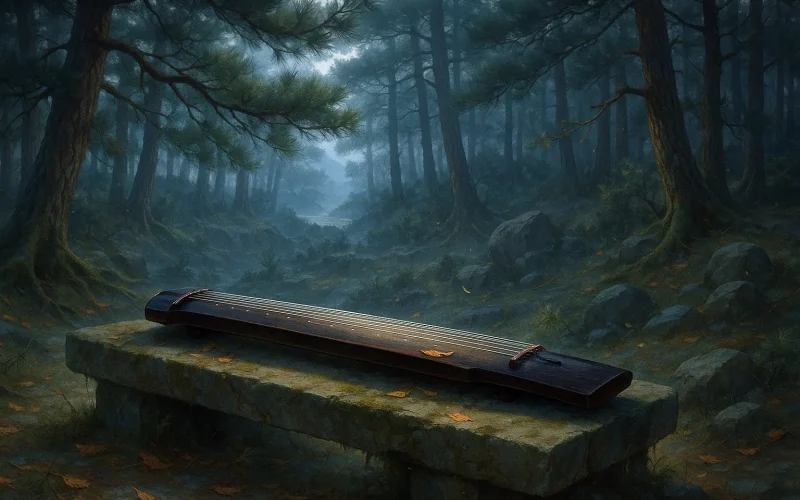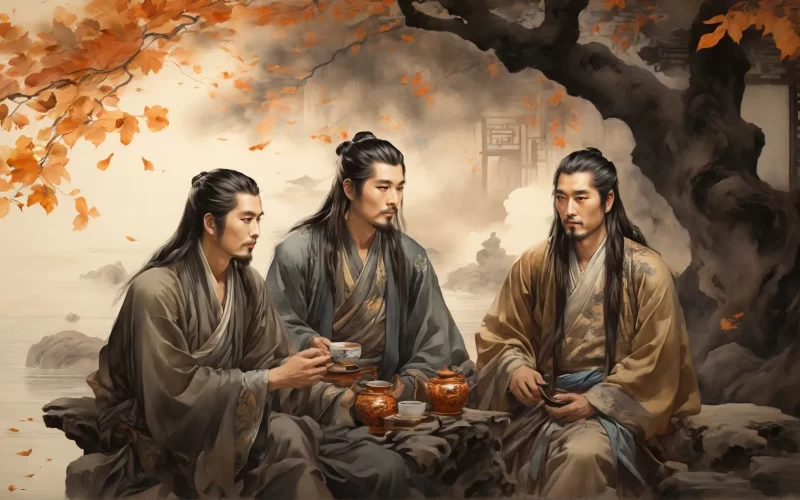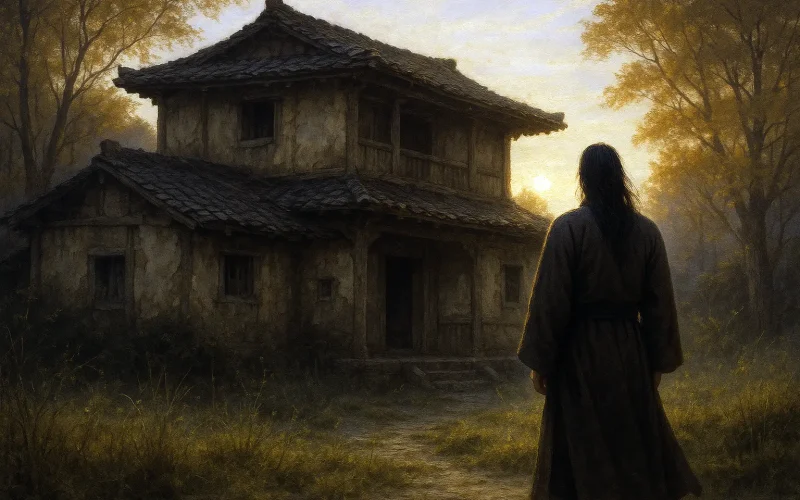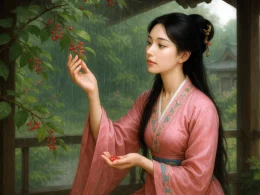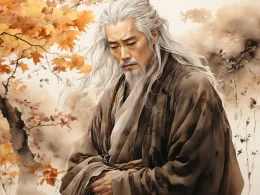Your seven strings are like the voice
Of a cold wind in the pines,
Singing old beloved songs
Which no one cares for any more.
Original Poem
「听弹琴」
刘长卿
泠泠七弦上, 静听松风寒。
古调虽自爱, 今人多不弹。
Interpretation
Composed during the mid-Tang Dynasty, this concise poem by Liu Changqing expresses his solitary refinement through the metaphor of guqin music. As courtly music declined and banquet tunes gained popularity during this period, traditional instruments like the seven-stringed guqin fell into neglect. Liu, a man of uncompromising integrity who suffered repeated demotions, projects his own unrecognized worth onto these "ancient melodies," creating a subtle yet profound allegory of intellectual isolation in changing times.
First Couplet: "泠泠七弦上,静听松风寒。"
Línglíng qī xián shàng, jìng tīng sōngfēng hán.
Crystalline notes from seven strings arise / Listening still, I hear pines whisper coldly through the skies
The onomatopoeic "crystalline" (泠泠) captures the guqin's pure timbre, while "pines whisper coldly" transforms sound into wintry landscape. This synesthetic imagery - where auditory becomes tactile and visual - creates an immersive aesthetic space reflecting the poet's rarefied sensibility.
Second Couplet: "古调虽自爱,今人多不弹。"
Gǔ diào suī zì ài, jīn rén duō bù tán.
Though I cherish these ancient airs / Few now play them - none who cares
The shift from description to lament reveals cultural alienation. The concessive "though" (虽) and quantitative "few" (多不) construct poignant tension between personal fidelity and collective abandonment. The guqin becomes a symbol of rejected traditional values in a vulgarized world.
Holistic Appreciation
This twenty-character masterpiece operates on three levels: as guqin performance description (I), cultural elegy (II), and spiritual self-portrait. The progression from sensory immediacy ("crystalline notes") to historical awareness ("ancient airs") mirrors the poet's movement from aesthetic appreciation to philosophical lament. The unbridgeable gap between "I" and "many" (今人) crystallizes the Tang intellectual's predicament - maintaining Confucian cultural ideals amid societal philistinism.
Artistic Merits
- Acoustic Alchemy: Translates musical experience into natural imagery (pine wind as sound metaphor)
- Temporal Duality: Juxtaposes ancient (古调) and contemporary (今人) in one perceptual frame
- Emotional Restraint: Conveys profound isolation through understated contrast (虽…多不)
- Cultural Symbolism: The guqin represents both musical tradition and scholar-official identity
Insights
Liu's poem speaks across centuries to all who uphold unfashionable excellences. His guqin becomes symbolic of any marginalized tradition - classical learning in digital age, craftsmanship in mass production, or privacy in exhibitionist culture. The work suggests that true cultural preservation requires not nostalgia but active stewardship by discerning individuals ("though I cherish"). Ultimately, it poses a perennial question: how to maintain fidelity to enduring values when metrics of value themselves change?
Poem translator
Kiang Kanghu
About the poet

Liu Zhangqing (刘长卿) was a native of Xian County, Hebei Province. He studied at Mt. Songshan when he was young, and later moved to Jiangxi, where he received his bachelor's degree in 733 A.D. He also belonged to the Wang and Meng school of poetry. His poems belonged to the school of Wang and Meng, and he was most famous for his five-character poems, and was also most conceited, once thinking that he was "the Great Wall of five-character poems", which meant that no one could surpass him.





